Are you thinking about moving to China? Or perhaps you know someone who is moving there, and you don’t quite know what it’s going to be like; either way this guide will give you an overview of everything you need to know about living in China. From bustling metropolises to iconic world-famous sites, China is a truly unique place to be an expat. Keep reading for everything from the cost of living in China to tips on banking and unexpected culture shocks!
Contents
- Everything You Need To Know About Living In China (As An Expat)
Everything You Need To Know About Living In China (As An Expat)
Hotel Apartments
To get you started, here are some hotel apartments to consider in various cities:
Life in China
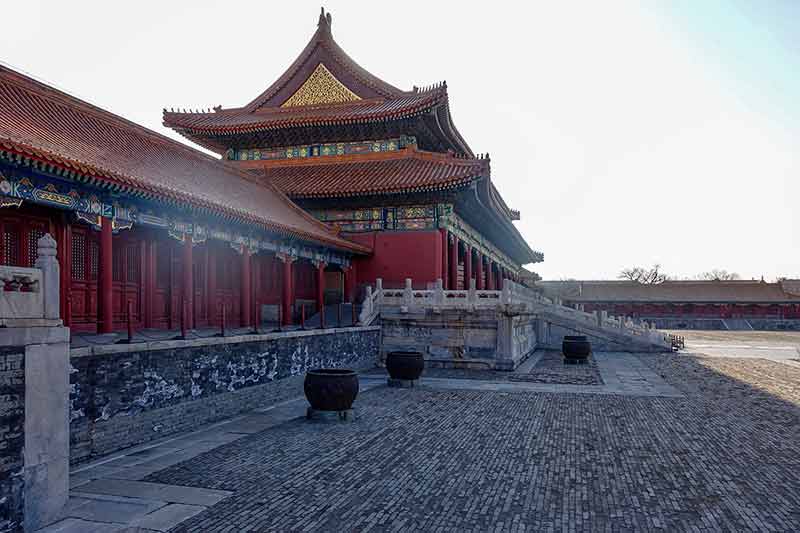
Often, life in China is shrouded in mystery, especially because of western media.
China is a fantastic place to live and while there are some challenges, everyday life is normal and incredibly fun!
Life in China is both calm and chaotic.
It’s calm because everyone obeys laws and lives their own lives but it’s also chaotic because there are after all 1.4 billion people living in mainland China!
Weekends and festivals can be hectic and it’s something you really must get used to! China is a country filled with a plethora of things to see and do.
There are natural landscapes, epic cities, different foods to try and a completely unique culture to learn and appreciate.
What’s it like being an expat in China?
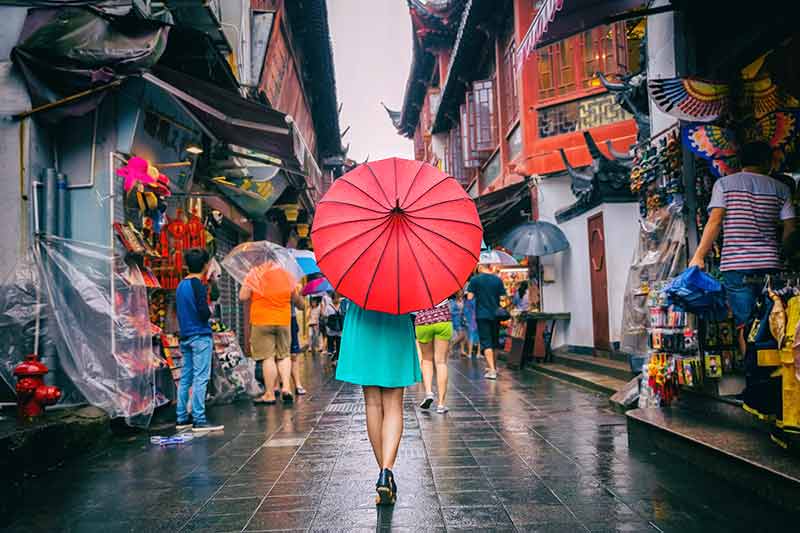
Living in China is a constant surprise.
No matter how many years you stay for, you will always find something new to discover.
If you’ve never been to China before, then one of the first things you will notice is how many people stare at you.
While people in places like Beijing and Shanghai are used to seeing foreigners, if you move to a smaller city or even find yourself in the countryside be ready for your fair share of stares.
There are so many crazy and different things across all walks of life to get used to in China.
From unusual foods to different social customs, it’s time to get ready for a whole new perspective on life.
Something you’ll notice when you talk to foreigners in China is how long they’ve been there for.
You will find that many foreigners intended to stay for a year or so but have ended up making a home in China.
This speaks volumes to how great a place it is to be an expat.
Climate
China is so vast that the climate varies from region to region.
Summer in China is typically warm and humid whereas winter is cold, with periods of rain and often snow.
In the north of China, the climate is temperate.
Summer temperatures are around 25°C (77°F) and winters are very cold, with temperatures around -10°C (50°F).
Head to the south and it’s more of a subtropical climate with hot summers.
Cost of Living in China

If you are thinking of living in China, you’ll want to know more about the cost of living.
The cost of living in China is around 45% lower than in the U.S and 2.4 times less expensive than the U.K.
For foreigners, salaries in China are usually high, so it’s a great place to live if you are looking to save money.
The cost of living does vary across China, sometimes quite considerably.
The cost of living in tier one cities like Beijing, Shanghai are considerably more than tier two cities.
The average price of rent per month for a 1-bedroom apartment in the city centre is around 3,532 RMB (US$496).
Basic utilities (electricity, heating, water, garbage) are around 388 RMB (US$54).
A meal in an inexpensive restaurant is around 25 RMB (US$3.52).
One thing to remember as an expat living in China is that imported foreign products are of course more expensive.
Though you can find affordable foreign products on apps like Taobao (淘宝) they are generally more expensive than back home.
Working In China
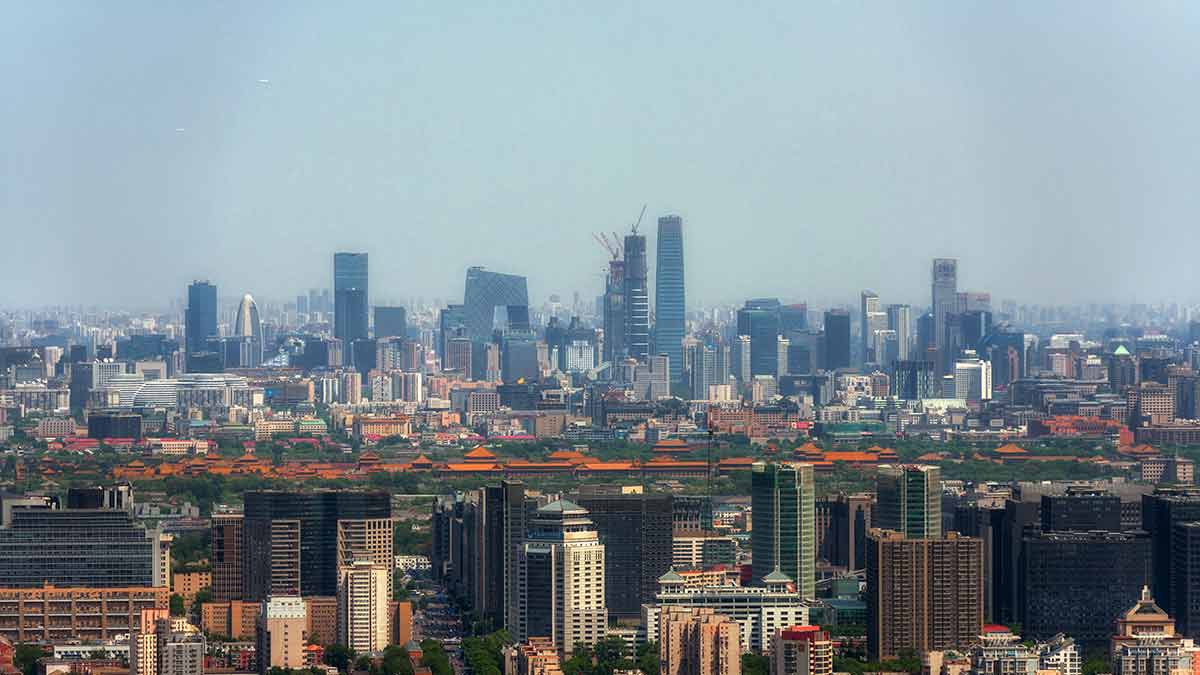
If you are thinking of living in China as an expat, then chances are you will be working or a studying.
While there are many different jobs you can get in China, the most popular jobs are usually in the fields of education, trade/commerce, IT/tech, and media.
Work life is very different in China than in the west.
Chinese workplaces usually have longer work hours with a one or two hour lunch break in the middle of the day.
This time is used for eating and sleeping.
For foreigners living and working in China one of the biggest things to get used to is the everyday work differences between Chinese people and foreigners.
While in the western world it is deemed okay to clock out on time, in China it is often viewed as a bad thing, almost as if you haven’t done enough work.
While it does vary, in many jobs, westerners don’t have to adhere to these expectations if all the work is done.
The work life balance is also different in China.
While the weekend is sacred for many foreigners, for Chinese people they will often have to work on the weekend.
Sometimes this overtime is paid and sometimes it is given in lieu of a half day during the week.
It should also be noted that holidays are very different in China.
If for example you receive a one-week national holiday vacation for the Lunar New Year celebration, then many employers will expect you to make up those days that you missed by working more before or after you get back.
It basically feels like you got no holiday at all but it’s a way of not missing work but giving employees an extended period off.
No matter how long you’ve lived in China, as a foreigner it just makes no sense! And nationwide annual leave is stingy to say the least.
There are only 10 days of national holiday each year and most workers are allowed five days (sometimes less) of annual leave.
You should also remember that holidays like Christmas are not recognised (though some places with foreigners allow you to take the day off).
Visas, Banking And Taxes
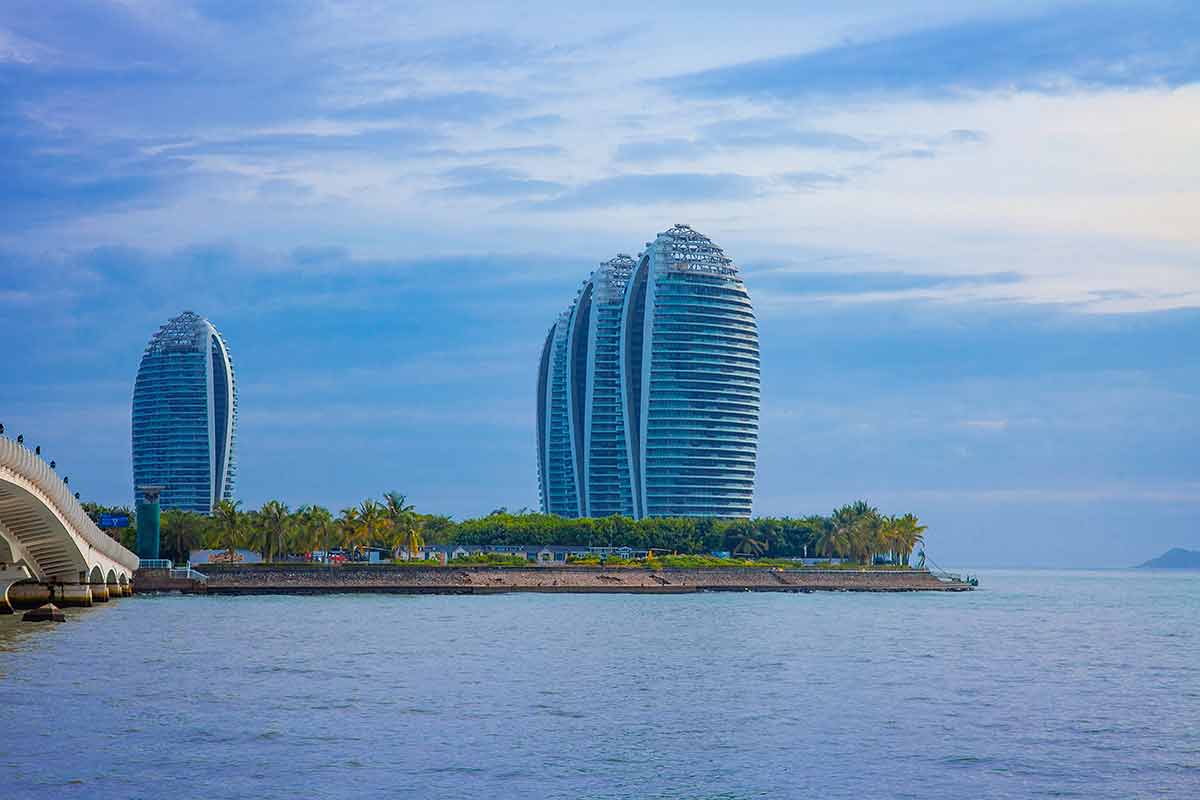
If you’ve ever lived in another country then you’ll know that the visa, banking, paperwork side of life is always a pain and a bit complicated.
In China it’s the same, with the added complication of a language barrier and stricter rules.
Visas
There are three types of visas for people thinking of moving to China and you must be on the correct visa and strictly obey the rules.
The two most popular visas for expatriates are the Z Visa (for work) and the X Visa (for studying).
The Q Visa is for family members of Chinese citizens but if you want to work in China, you will need a Z Visa.
Depending on your job there will likely be a lot of documents that need to be prepared for the visa.
Documents (qualifications and certificates) should be notarized in your home country and often translations of these documents are required too.
When you are granted your Z Visa you aren’t done yet as this visa simply allows you to fly to China.
Once you are there you will need to register with local police and your employer will help you to apply for a Foreign Work Permit (which lasts 12 months and should be renewed every year).
The X study visa has two types depending on the duration of your program.
- There’s the X1 visa that allows you to stay for a studying period of five years.
- The X2 is for study durations that are less than 180 days.
To obtain a study visa you will need proof of acceptance from your school, university, or academic program.
Top Tip: Be very careful to check that your employer can assist you with a foreign work permit once you arrive in China.
There are unfortunately many companies who want foreign employees but have no right to legally get them a visa.
Check out your company’s social media to see if they’ve employed foreigners before and ask them directly for proof of their ability to employ foreigners legally.
Looking for more places to live? Read:
Banking
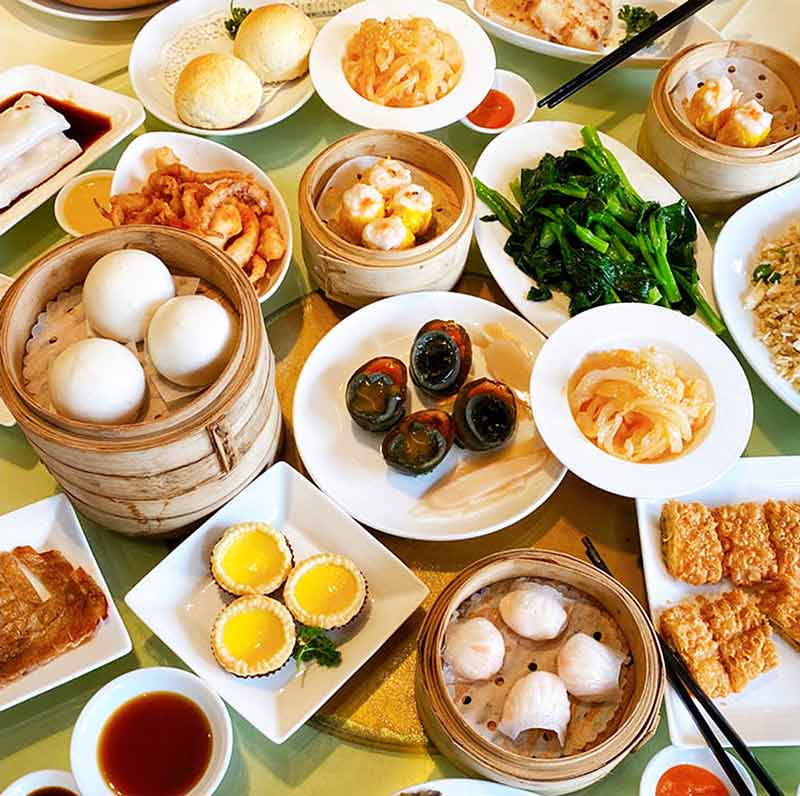
Since the COVID-19 pandemic, restrictions on banking for expats has tightened and these days you cannot open a Chinese bank account without a foreign work permit card.
Your employer should start this process within 30 days of your arrival, but it can take around six weeks to get your permit and be able to open a bank account.
When you open your bank be sure to choose a bank that allows for foreign money transfers (if that’s something you require).
Unless your Chinese is top notch you may also want to consider going with a work colleague or someone who speaks Chinese.
Although the big banks like the Bank of China are used to dealing with foreigners it can still be a bit of a process.
You should also consider that in large cities at big banks, foreigners must make an appointment and often these banks allocate limited spots for foreigners each week.
Taxes
Individuals living in mainland China for a total of 183 days in a tax year are considered tax residents.
China has a seven-tier tax system.
The tax rate on <36,000 RMB of annual cumulative tax income (tier 1) is 3%.
Many foreigners will be in tier 4 earning between 300,000 – 420,000 RMB a year and will be taxed 25%.
Safety In China

Because of the way western media often portrays China, many people may wonder how safe it is to live in China.
If you are considering moving to China and have a legitimate job and upon arrival obtain the correct visa documentation, then China feels like a very safe place to live.
Many expats will attest to it being a very safe one and never encountering any problems.
China has a lot of CCTV cameras so this fact alone deters a lot of crime that you would find in other parts of the world.
Living in China as a foreigner is just about living like a Chinese person would.
China shouldn’t be treated as a “party expat” destination like other places in Asia.
If you obey everyday laws and behave in a respectful manner, then you should encounter very few issues in China.
China also has excellent health care so in the case of any accidents then you should feel safe in getting the correct treatment (though it’s always better if you go to the hospital with a native Chinese speaker).
Be sure to check out your health insurance policies before moving to China.
Most jobs will cover basic work-related healthcare emergencies, but you will have to pay out of pocket for any other medical assistance or ensure that your insurer covers mainland China.
Best Places for Expats to Live
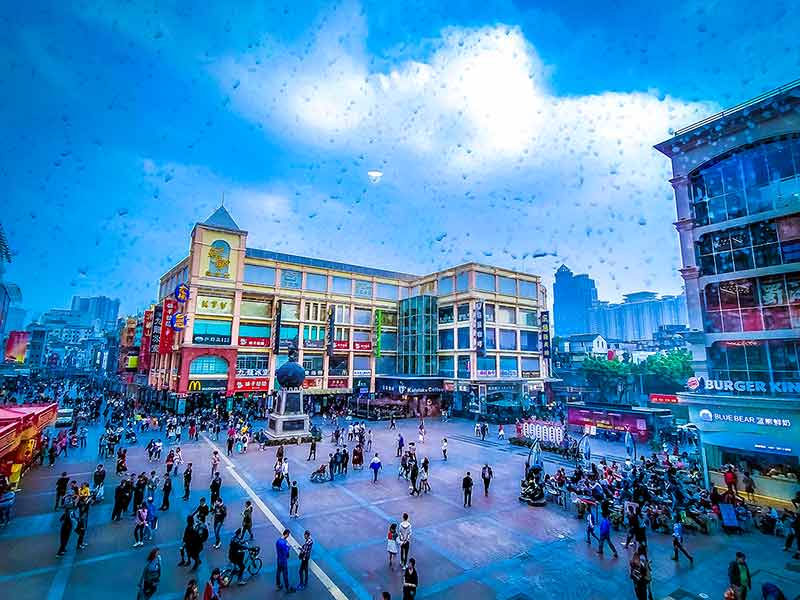
China categorises its cities by tiers.
There are four tiers with T1 being the highest and T4 being the lowest.
Beijing, Tianjin, Shanghai, Guangzhou and Chongqing are the only T1 cities.
These tiers take into consideration GDP, population and politics.
When it comes to where to live in China there are some obvious choices like Beijing and Shanghai but it’s not to say they are the only choices.
There are plenty of amazing tier 2 cities that you will be more than happy living in.
Just because you’ve never heard of the city doesn’t mean it’s not a great place to live.
While Shanghai and Beijing certainly do have more of an expatriate community, there are downsides to living in these thriving metropolis’ most notably the cost of living.
Though salaries for teaching jobs and other foreign jobs are higher it’s something you should take into consideration.
Other lesser known, but equally great cities for expats include Hangzhou, Shenzhen, Chengdu and Nanjing.
These places are thriving, the nightlife is good and there’s plenty of things to do.
Of course, it may be that your job dictates which city you will be living in.
While looking for jobs be sure to check out the best things to do in the city and see how long the list is as it offers a good indication of the development of the city and consequently how much there is to do.
You can also download “xiao hong shu” (小红书) which translates as “little red book”.
This social media app is great for finding interesting things to do in your city as well as other social media content.
5 Top Tips For Moving to China
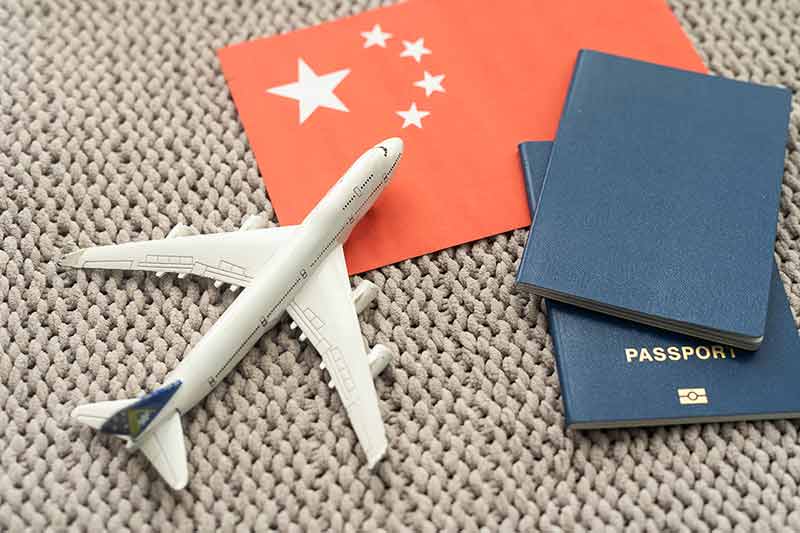
1- We Chat is life
WeChat is the WhatsApp of China and it’s basically impossible to live in the country without it.
Be sure to download it before you arrive as it’s not only good for communication but the translation feature will be invaluable to you.
2- Pay for a VPN
As you probably know you will need a VPN to use apps like Instagram, Facebook, WhatsApp and even Google in China.
The free VPNs simply won’t cut it.
Most of them stop working after a while and are not reliable.
You can purchase a VPN from companies like Express VPN but be warned they are expensive and don’t work too well.
The best option is unfortunately to pay for a VPN and then try and find a more reliable one through word of mouth once you are in China.
3- Mentally prepare yourself for squat toilets
As soon as you arrive in China, you’ll notice something different about the bathrooms.
While in many places there will be western style toilets there will be the addition of the squat toilet.
A hole in the ground toilet…it does take some getting used to!
4- Start learning Chinese
While it is possible to live in China and not speak Chinese it sure is helpful if you know the basics when you first arrive.
Learning taxi conversations, basics for ordering food and pleasantries will make a huge difference to your experience in China when you first arrive.
5- Download DiDi
DiDi is China’s Uber! It is super easy to use, you can either download the app or you DiDi through WeChat.
The application is even in English so there should be very few issues with moving around.
It should be noted though that payments are made through WeChat Pay not in cash so you will need to get someone to send you some money on your WeChat account.
For more things to do in China read:
- 25 Famous Landmarks in China
- Best Time To Visit China
- 20 Ways To Celebrate Christmas In China
- 20 China Beaches For Your Bucket List
- 20 Things To Do In Shanghai At Night
- 20 Things To Do In Guangzhou
- 21 Places To Visit In China
- 7 Things To Do In Xiamen
- 20 Things To Do In Xian
- Yangtze River Cruise
- Inner Mongolia In Winter
- Places To Visit In Yunnan
- 20 Things To Do In Beijing At Night
- 20 Smart Cities in China
- Winter in China – 20 Things To Do
- 15 Things China Is Famous For
- Living in China – Everything You Need To Know
- 20 Endemic Animals In China And Where To See Them
- 12 National Parks in China
- 20 Things To Do In Chengdu At Night
- 20 Things To Do In Chongqing At Night
Plan Your Trip

Rent A Car – Find the best car rental rates at Discover Cars. They compare car hire companies to provide you with the best deal right now.

Find A Hotel – If you’re curious about this article and are looking for somewhere to stay, take a look at these amazing hotels.

